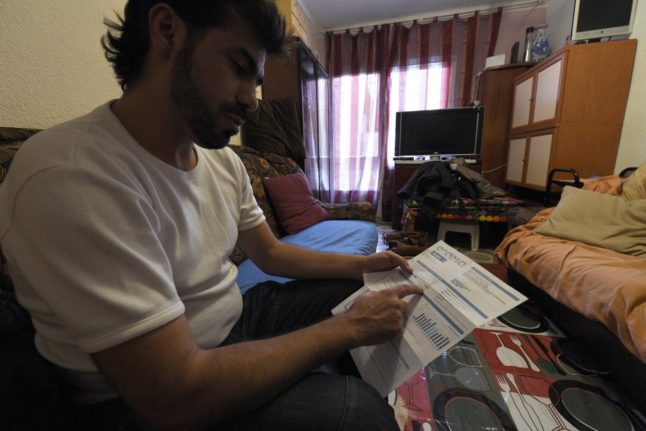On Wednesday June 22nd Spanish Prime Minister Pedro Sánchez announced a further reduction in VAT on electricity prices.
Speaking to the Spanish parliament, Sánchez explained that the VAT reduction, from 10 percent to five percent, would be approved at a cabinet meeting this weekend.
But this isn’t the first time that the Spanish government has taken direct action to tackle skyrocketing electricity prices.
Last year it also slashed the VAT rate on electricity 21 percent to 10 percent to try and soften impact of rising electricity price rises on consumers facing price increases across the board.
Facing criticism for his government’s record on helping consumers, Sánchez blamed “a war at the gates of Europe” for the rises, and said the latest cut will form part of a package of measures to try and stem the effects of inflation, which hit a staggering 8.7 percent in May, the highest level in Spain for decades.
READ MORE: Spain to cut electricity tax by half to ease inflation pain
But how much can you actually expect to save on your electricity bill following the news?
How much will I save?
While a cut to the VAT rate paid on electricity is welcome, in reality it seems the difference to electricity bills will be minimal.
According to experts, lowering VAT from 10 to 5 percent will mean savings of around €4 a month for households with an average consumption (270 kWH per month and a contracted power of 4 kW) on the regulated market.
Let’s look at an example. A household with consumption at 270 kWH per month would have paid €95.43 in the last 31 days. If VAT had been applied at 5 percent, as it will be under the government’s proposed cut, their monthly bill would have worked out €4.30 cheaper.
For comparison, if the government had not stepped in at all and no tax reductions of any kind had been applied, that same receipt would have been €109.6.
How much will it cost the government?
Cutting VAT, although welcome and much needed by most consumers at the moment, does come at a cost. Officials from the Hacienda believe that lowering VAT to 5 percent will cost the public coffers up to €460 million in the next three months alone.
Hacienda estimates that the government has so far spent €3.8 billion on all tax cuts to lower electricity bills.
Is it enough?
Is another VAT cut enough to recoup the difference and negate rising prices? Simply put, if wholesale electricity prices (something the Spanish government has no control over) continue to rise at the rate they have been, the prices passed onto the consumer will most likely make the cuts to VAT negligible.
At the start of June, the daily price of electricity began at €210/Mwh, but by this week this Thursday it had already climbed to €272/mWH – a 29.5 percent spike since the beginning of the month equivalent to €62 extra on bills.
With no end to war in Ukraine or the volatility on the energy market in sight, the Spanish government is searching for ways to ease the burden on consumers. Labour Minister Yolanda Díaz recently proposed slashing the price of monthly public transit passes by 50 percent and offering €300 to people hit hardest by rising prices.
READ MORE: Spain eyes €300 handouts for most vulnerable and further fuel reductions



 Please whitelist us to continue reading.
Please whitelist us to continue reading.
Member comments